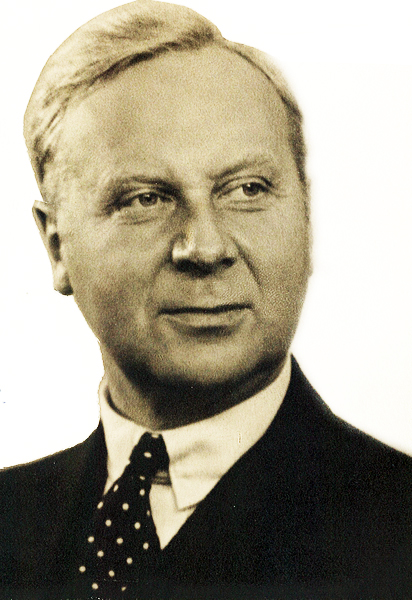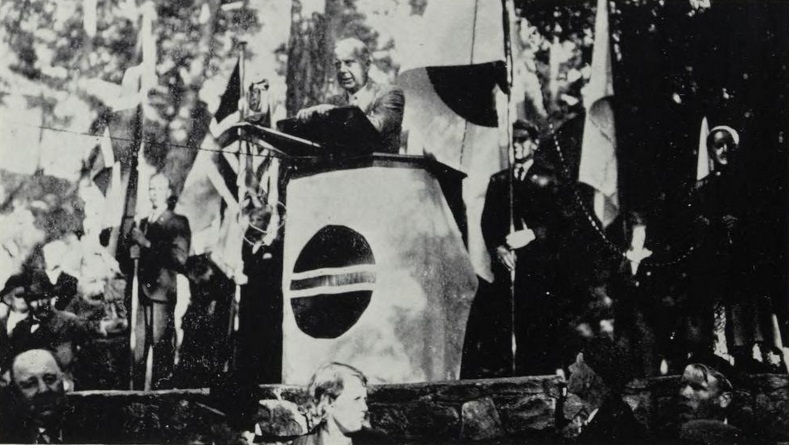Victor Mogens on:
[Wikipedia]
[Google]
[Amazon]
 Victor Andreas Emanuel Mogens (16 August 1886 ŌĆō 17 January 1964) was a Norwegian journalist, editor and politician for the Fatherland League.
Victor Andreas Emanuel Mogens (16 August 1886 ŌĆō 17 January 1964) was a Norwegian journalist, editor and politician for the Fatherland League.
 He was born in
He was born in
 Victor Andreas Emanuel Mogens (16 August 1886 ŌĆō 17 January 1964) was a Norwegian journalist, editor and politician for the Fatherland League.
Victor Andreas Emanuel Mogens (16 August 1886 ŌĆō 17 January 1964) was a Norwegian journalist, editor and politician for the Fatherland League.
Pre-war life and career
 He was born in
He was born in Bergen
Bergen (), historically Bj├Ėrgvin, is a city and municipality in Vestland county on the west coast of Norway. , its population is roughly 285,900. Bergen is the second-largest city in Norway. The municipality covers and is on the peninsula of ...
, and grew up in Bergen, Trondheim
Trondheim ( , , ; sma, Tr├źante), historically Kaupangen, Nidaros and Trondhjem (), is a city and municipality in Tr├Ėndelag county, Norway. As of 2020, it had a population of 205,332, was the third most populous municipality in Norway, and ...
, Kristiania
Oslo ( , , or ; sma, Oslove) is the capital and most populous city of Norway. It constitutes both a county and a municipality. The municipality of Oslo had a population of in 2022, while the city's greater urban area had a population of ...
and Holmestrand before returning to Bergen to finish his secondary education at Bergen Cathedral School
Bergen Cathedral School (Norwegian: ''Bergen Katedralskole'', Latin: ''Schola Cathedralis Bergensis'', formerly known as Bergens l├”rdeskole and Bergen latinskole and colloquially known as Katten) is an upper secondary school in Bergen, Norway. Loc ...
in 1905. He then went through some years of law studies. He was a journalist in '' Landsbladet'' from 1910 to 1911, and was then hired in ''Verdens Gang
''Verdens Gang'' ("The course of the world"), generally known under the abbreviation ''VG'', is a Norwegian tabloid newspaper. In 2016, circulation numbers stood at 93,883, having declined from a peak circulation of 390,510 in 2002. ''VG'' is n ...
'' where he soon became subeditor. He then edited the periodical ''Ukens Revy
''Ukens Revy'' (roughly "Weekly Review") was a Norwegian periodical, published in Oslo.
History and profile
''Ukens Revy'' was founded in September 1914 as a conservative-leaning literary and political periodical. The first editor was Hjalmar Chri ...
'' from 1914 to 1921 and his own magazine ''Utenrikspolitikken'' from 1921 to 1924, but the latter publication went defunct. He was a journalist in ''Vor Verden'' from 1927 and editor from 1929 to 1932. He also edited ''Norges N├”ringsveier''.
Mogens had a parallel career in the Norwegian Broadcasting Corporation
NRK, an abbreviation of the Norwegian ''Norsk Rikskringkasting AS'', generally expressed in English as the Norwegian Broadcasting Corporation, is the Norwegian government-owned radio and television public broadcasting company, and the largest ...
radio. He started as a foreign news journalist there in 1927, and soon started as a commentator. Some liked him, but many complained about him being biased, and he was pressured to resign in 1936. Among the complainers were the British legation
A legation was a diplomatic representative office of lower rank than an embassy. Where an embassy was headed by an ambassador, a legation was headed by a Envoy Extraordinary and Minister Plenipotentiary, minister. Ambassadors diplomatic rank, out ...
in Norway. Mogens instead started and edited his own publication, ''Utenrikspolitisk kronikk''.
In the same year he was a candidate for the 1936 Norwegian parliamentary election
Parliamentary elections were held in Norway on 19 October 1936, Dieter Nohlen & Philip St├Čver (2010) ''Elections in Europe: A data handbook'', p1438 the last before World War II and the German invasion of Norway. The result was a victory for the ...
for the anti-Communist
Anti-communism is Political movement, political and Ideology, ideological opposition to communism. Organized anti-communism developed after the 1917 October Revolution in the Russian Empire, and it reached global dimensions during the Cold War, w ...
Fatherland League organization for the constituency Akershus
Akershus () is a traditional region and current electoral district in Norway, with Oslo as its main city and traditional capital. It is named after the Akershus Fortress in Oslo. From the middle ages to 1919, Akershus was a fief and main county ...
. The candidacy was unsuccessful, but he chaired this organization from 1938.
World War II
Fedrelandslaget was disestablished in 1940, when Nazi Germany invaded Norway on 9 April 1940 as a part ofWorld War II
World War II or the Second World War, often abbreviated as WWII or WW2, was a world war that lasted from 1939 to 1945. It involved the vast majority of the world's countriesŌĆöincluding all of the great powersŌĆöforming two opposin ...
. The Nazi Vidkun Quisling performed a coup d'├®tat, but Mogens tried to have Quisling removed, as he was still hoping that Fedrelandslaget and not Quisling's party Nasjonal Samling would be the main cooperator with the German occupants. On 26 April 1940, the Bremen
Bremen (Low German also: ''Breem'' or ''Br├żm''), officially the City Municipality of Bremen (german: Stadtgemeinde Bremen, ), is the capital of the German state Free Hanseatic City of Bremen (''Freie Hansestadt Bremen''), a two-city-state consis ...
-based broadcaster of Norwegian-language propagandistic news, Edvard Sylou-Creutz
Edvard Sylou-Creutz (7 May 1881 – 11 May 1945) was a Norwegian classical pianist, composer and radio personality, who was especially active in Nazi-controlled radio in Germany and occupied Norway between March 1940 and the autumn of 1942.
...
, lamented the absence of Mogens as a commentator, stating that if Mogens had continued, the Norwegian people might have been more friendly towards Germany.
Mogens did return to the Norwegian Broadcasting Corporation. He was asked by the '' Reichskommissariat Norwegens ''Hauptabteilung Volksaufkl├żrung'' to become a commentator, radio lecturer or editor of the broadcast programming
Broadcast programming is the practice of organizing or ordering (scheduling) of broadcast media shows, typically radio and television, in a daily, weekly, monthly, quarterly or season-long schedule.
Modern broadcasters use broadcast automatio ...
magazine '' Hallo-Hallo!''. He declined all these offers, but held his first speech on 11 June 1940, one day after Norway's capitulation. In it, he criticized Quisling as well as the pre-war, now-exiled Labour government. Two weeks later he hailed the downfall of the parliamentarian system.Dahl, 1978: p. 185
He was favored by many Germans; according to historian Hans Fredrik Dahl
Hans Fredrik Dahl (born 16 October 1939) is a Norwegian historian, journalist and media scholar, best known in the English-speaking world for his biography of Vidkun Quisling, a Nazi collaborationist and Minister President for Norway during the ...
he was "the Germans' alternative to Quisling".Dahl, 1978: p. 184 He was later discussed as a government minister
A minister is a politician who heads a ministry, making and implementing decisions on policies in conjunction with the other ministers. In some jurisdictions the head of government is also a minister and is designated the ŌĆśprime ministerŌĆÖ, Ō ...
, but disappeared from the spotlight in the autumn of 1940. The reason was that the Norwegians who were counterparts to German occupants in governmental negotiations ( no, riksr├źdsforhandlingene), could not stomach Mogens and his views conveyed on 11 June.
From 1942 he lived in a cabin in V├źg├ź, and in 1943 he wrote the self-apologetic book ''Tyskerne, Quisling og vi andre'' which was published after the war in 1945. He was not sentenced for treason during the legal purge in Norway after World War II
The purge in Norway after World War II was a purge that took place between May 1945 and August 1948 against anyone who was deemed to have collaborated with the German occupation of the country. Several thousand Norwegians and foreign citizens wer ...
. The main reason was his outspoken antipathies towards Nasjonal Samling.
Personal and post-war life
From 1911 to 1924 Mogens was married to diplomat's daughter Hedvig Ellingsen (1882ŌĆō1944). From 1930 he was married to Russian-born writer Nina Arkina (1892ŌĆō1980). He spent much of his later life living abroad, and continued writing books. The best known book was ''Folket som ikke vil d├Ė'' ("The People Who Will Not Die"), a pro-Israel
Israel (; he, ūÖų┤ū®ų░ūéū©ųĖūÉųĄū£, ; ar, žź┘Éž│┘Æž▒┘Äž¦ž”┘É┘Ŗ┘ä, ), officially the State of Israel ( he, ū×ų░ūōų┤ūÖūĀųĘū¬ ūÖų┤ū®ų░ūéū©ųĖūÉųĄū£, label=none, translit=Med─½nat Y─½sr─ü╩Š─ōl; ), is a country in Western Asia. It is situated ...
publication. He died in January 1964 in Oslo.
References
{{DEFAULTSORT:Mogens, Victor 1886 births 1964 deaths Journalists from Bergen People educated at the Bergen Cathedral School Norwegian magazine editors Norwegian radio personalities NRK people Fatherland League (Norway) Norwegian non-fiction writers 20th-century Norwegian journalists Politicians from Bergen